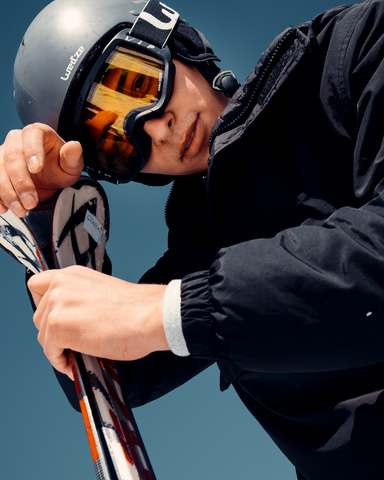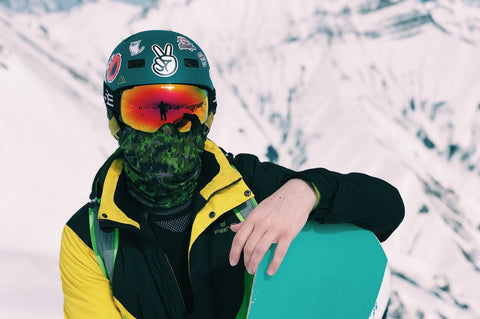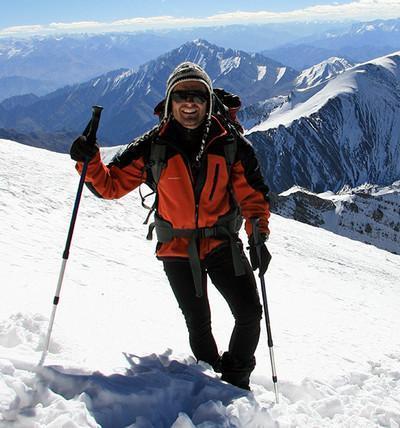This is a great question and one that many consumers are concerned about. Snowboarding can be an incredibly dangerous sport, but if you're properly equipped with the right gear, you can reduce your risk of injury significantly.
Your helmet is one of the most critical pieces of safety equipment that you wear when boarding. And it is extremely important that your snow helmet is not outdated.
Snowboard Helmets Replacement: Specific Recommendations
Are you sick and tired of risking your well-being and your safety on the slopes of the ski hills? Have you ever skied without a helmet? It's crazy to think that some people have taken the risk of not wearing a helmet.
Thankfully, you don't have to worry about that anymore. Wearing a helmet is mandatory for all skiers and snowboarders at all ski hills. Skiing is a great sport, but it also has its dangers.
Even if you are skiing on a perfect slope, there are many things outside of the slope that can still lead to injury or death. To minimize your risk of injury, don't forget your helmet. How often should you replace ski helmets depends on a few factors. Those factors include materials used by ski manufacturers, number of falls and impact weight, frequency of using a snowboard helmet, etc.

How do know if it is time for a new ski helmet? Is your helmet good to go or can it last for a little bit longer? You have a good helmet, maybe you can risk it for a little longer? Maybe you can, but you shouldn’t.
The ski garment is already very expensive, and the new helmet is an additional expense, but as expensive as it is, it’s still much cheaper than the risk of going into an emergency room. So, do not think about it, and replace your ski helmet with a new one. And we will help you decide if it is time for this specific purchase. Keep reading and prepare yourself for the next snowboarding season, to avoid head injury and unwanted trips to an emergency room.
How Long Do They Last?
The expiration date of ski helmets depends on many factors.
If you are wearing a ski helmet a lot, you should replace it more often, but if the snow season goes by with just a few downhills, your helmet will probably last longer.
Snell Foundation suggests replacing your ski helmet every two to about five years and this is the rule only for helmets that are not crushed in accidents. Because with time passing helmets get damaged by ultraviolet rays, body fluids, hair products, and harsh chemicals. If a ski helmet is used for too long it can become larger for whole head size.
What To Look For In a Helmet?
When looking for a snowboard helmet, every winter sports enthusiast should look for safety, support, and protection.

First, it is important to find the right size of the helmet, because wearing the wrong size can make more problems than good. So make the helmet fit snug when you are choosing.
Next is the material used for manufacturing. Most ski helmets are made of expanded polystyrene which is a type of foam that has plastic beads with air bubbles packed tightly. Those bubbles crush under impact pressure. Another very good choice is expanded polypropylene. Expanded polypropylene is a closed-cell bead foam that is even more durable than expanded polystyrene.
Except for the material of the interior shell, it is highly important to have a very durable outer shell. It is best to be a hard outer shell.
This way the ski helmet will protect you from head injuries and you will enjoy your winter holiday.
When To Replace Your Helmet?
As we said before, if there were not one crash, the lifetime of a ski helmet is 2 to 5 years, depending on the frequency of use and impact of destructive matter. After that, a soft shell is perishing and is not suitable for normal wear. If there were at least one crash then recommend replacing depends on a material of a shell.
If ski helmets are made from expanded polystyrene, essentially plastic beads are destroyed after just one crash, and you should replace the helmet immediately. You may also want to replace your helmet sooner if it has been weakened by screwing a GoPro mount on.
If ski helmets are made from expanded polypropylene, they can survive multiple drops, since their air bubbles are more durable.
How To Make Sure You Get The Most Out Of Your Helmet?
If you want your helmet to last for as long as possible, make sure you clean and store it probably. And, you know, do not crash it.

It is a good idea to clean your helmet at the end of a powder day or before a rainy day because it is necessary to remove sweat and other liquids from the head. It is not enough just to wipe it with a towel.
The process of cleaning the helmet is simple. Clean it after every wear. First, you need to remove the visor and bathe it separately. Then, you need to use a wet cloth to clean the outer surface of the helmet. After that, you can use a cloth to remove all of the grains of snow and mud, if any. Do not use a washing machine, it will destroy your helmet.
Your ski helmet must be stored in a dry, cool place for it to last long.
Don’t store your helmet in extreme heat and direct sunlight. Secure the shell, fasteners, visors, chinstraps, and other integral components. Keep your helmet away from sharp objects that could damage the shell. Wash your helmet with mild soap and water, and do not store the helmet until it is completely dry.
At The End
Let’s make sure we have basic, most important things remembered.
Pick the right size of the helmet. Snell Foundation says you can use it for 2 to 5 years, after that you need to replace the helmet. If the helmet is made of EPS, after only one crash, replacing your helmet is a good call. If it is made from EPP your helmet can stand a few crashes before it needs replacing. And be sure to clean and store it properly, to extend its lifetime.
Frequently Asked Questions, Answered
Do snowboard helmets really expire?
If you’re into snowboarding, you should know that snowboarding helmets expire and you should replace your helmet every 1 to 3 years. This is actually true because it actually depends on the age, rental use, and the number of times it’s gotten dinged up again while you've gotten back on your board after taking a fall.
A helmet should fit snugly enough that it doesn’t move around on your head when you shake it back and forth. However, this also depends on the shape of your head, the brand of the helmet that you’re using, and the width of your head.
Should I replace my helmet if I drop it?
No, and yes. It depends on the severity and where it hit and what it hit. If your helmet is merely dirty and/or scratched, you don’t necessarily need to replace it, but it probably wouldn’t hurt to get a fresh one. If you get a new one, make sure to get a new chin strap.
If it’s been, say, dropped from the top of a building and landed right on its edge, you should probably get a new one. Same deal if it shattered and you need to get the chunks out, or if the inner foam separated.
What do you do with an old ski helmet?
There are several uses for old or damaged helmets. Old helmets make the best garden pots for herbs and container gardens, can be used to store tools, can be turned into bird feeders, make great planters for flowers and great containers for dog poop bags, and make excellent pet toys.
Which ski helmet is best?
Fitting for helmets is very important. If it doesn't fit correctly if it's not comfortable if it's not respecting your head’s natural movement and the shape of your head, it's not going to protect you as best as it can.
It's important as well as the style, the brand as well as the price. There are different styles and different prices. There's a different shape and different function.
ABOUT THE AUTHOR
Fred Felton
Content Creator / Editor
Fred Felton is a copywriter, editor and social media specialist based in Durban, South Africa. He has over 20 years of experience in creating high end content. He has worked with some of the biggest brands in the world. Currently Fred specialises in the winter outdoors space, focussing on skiing and snowboarding. He is also a keynote speaker and has presented talks and workshops in South Africa.






